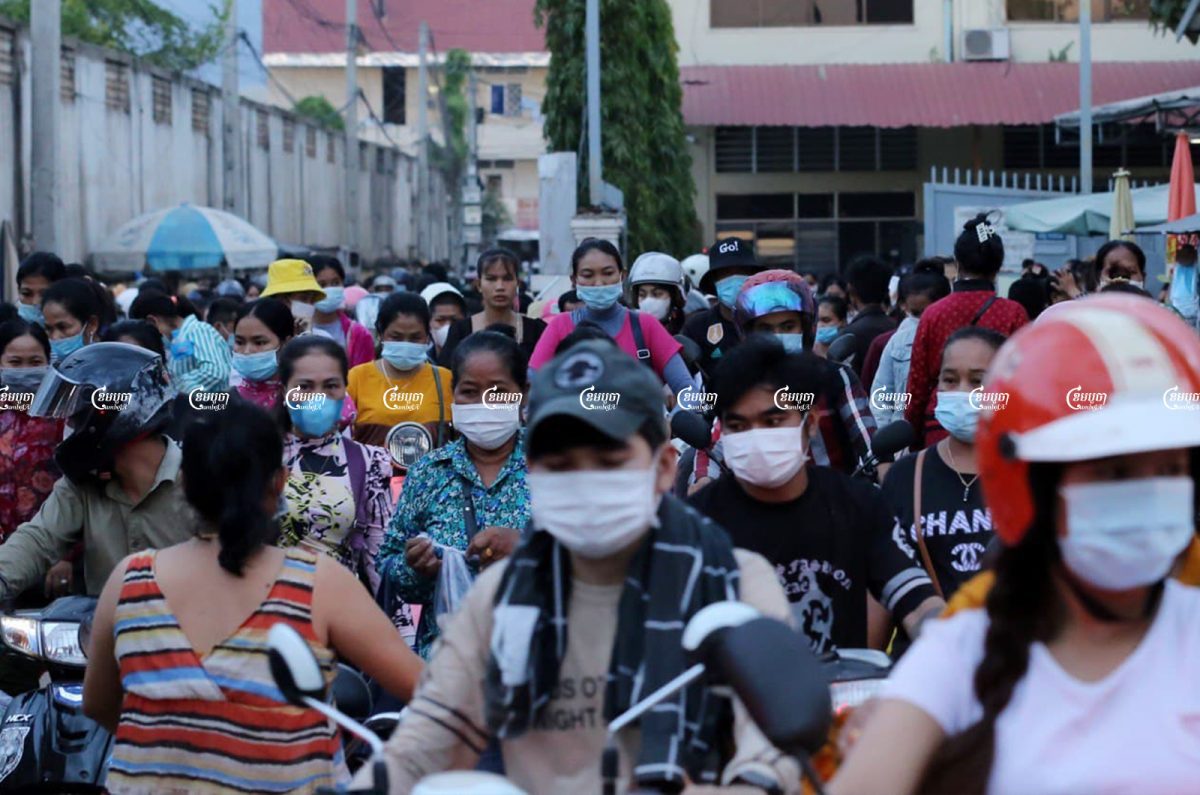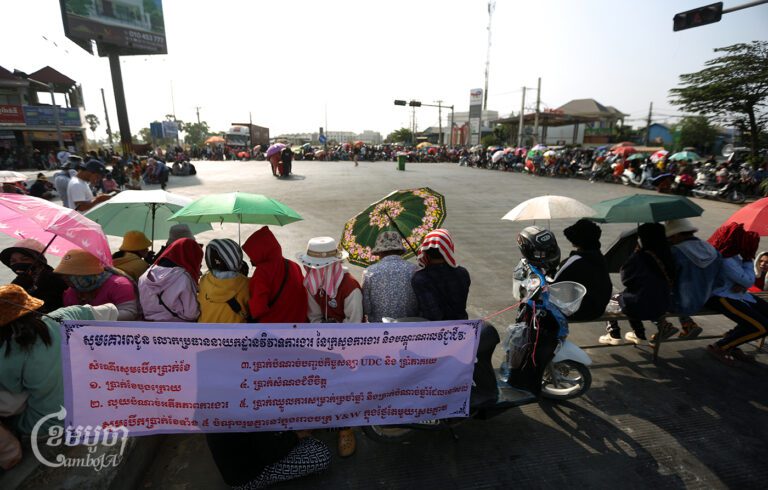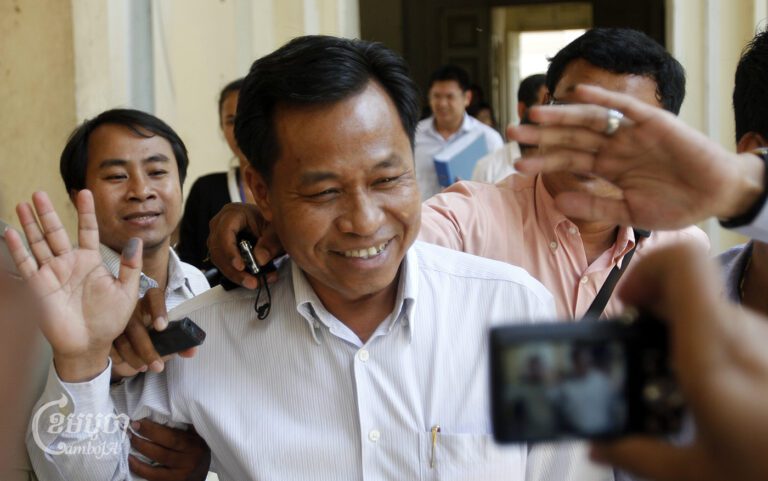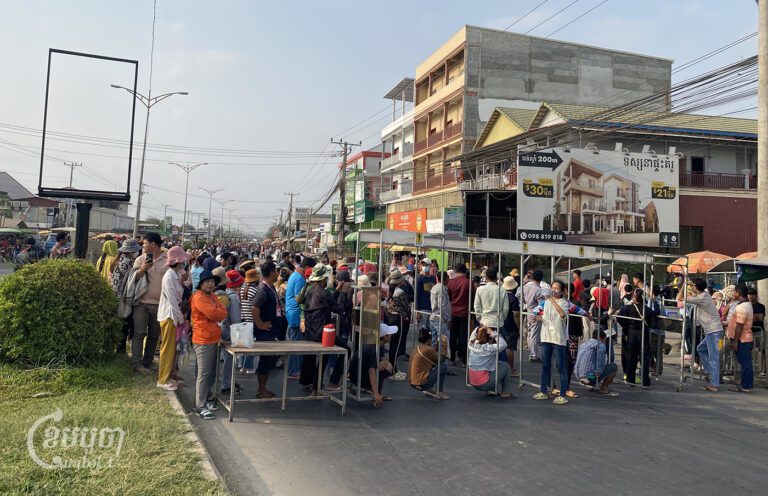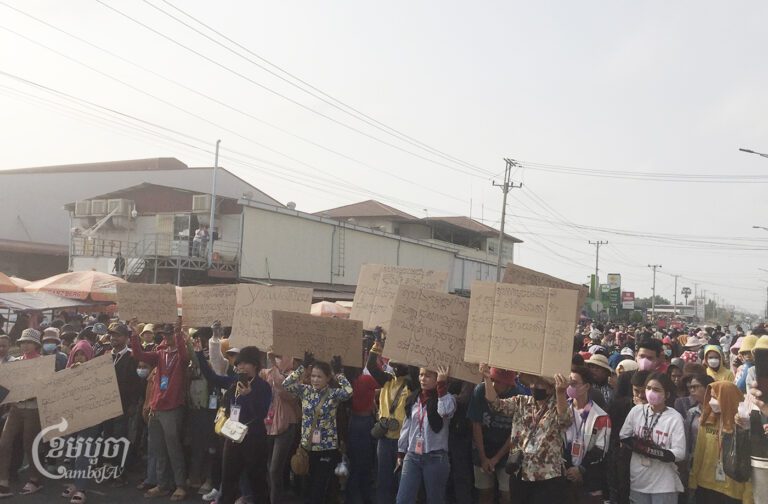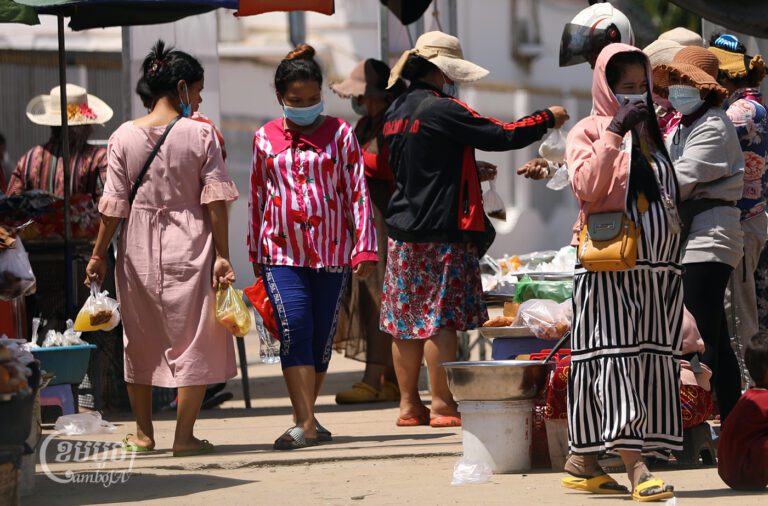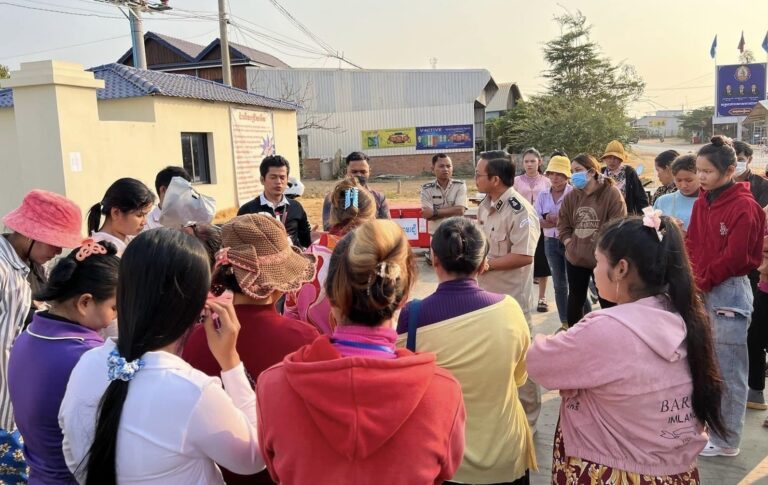As the first day of a three-way negotiation of the minimum wage for Cambodian garment workers, union and industry representatives have reached an early disagreement on the prospect of a wage increase for 2022.
The tripartite meeting also includes the Ministry of Labour, which hosted the event and presented it by videoconference as a COVID-19 prevention measure. By the end of Tuesday, the first day of the negotiations that will run through September, union representatives had requested a wage increase of $22.20 to yield a minimum monthly salary of $214.20 for 2022. The industry group Garment Manufacturers’ Association in Cambodia (GMAC) is now resisting this, pointing to the impacts of COVID-19 and the need to maintain investors.
Ath Thorn, president of the Cambodian Labour Confederation — one of the country’s biggest unions who attended the Ministry talks — said employers are appealing to job stability over pay increases.
“Employers have said that they were [in difficult conditions] and they requested not to raise the wage in order to maintain labour, stability is better than negotiating the minimum wage,” Thorn said.
He said that the first round of threeway talks just presented the overall situation and opinions of the parties, and isn’t yet sufficiently detailed along economic criteria.
Kaing Monika, GMAC deputy secretary-general, also said Tuesday’s session had just been an opening meeting without much technical detail.
“We would show our respective opening stance at the next meeting on September 14,” Monika said, adding that the employer side today just started the discussion by “setting the context” of global, regional and local crises.
“We also have to discuss in the context of Cambodia’s economic recovery plan for 2021-2023 to bring the economy back on the path of pre-crisis and the need to attract more investors in multiple sectors,” he said. “We also have to take into account the potential high operational cost due to preventive safety measures required going forward.”
Monika said that while many countries have suspended minimum wage discussions for 2021and 2022, Cambodia had the courage to negotiate amid the crisis. At the behest of the government, the wage last year increased by $2.
“This is an annual wage “review” meeting, and review doesn’t necessarily mean increase,” he said. “Since we have the courage to negotiate, we (especially unions) must also have the courage to accept the technical result – the result that is not only popular for the workers/union members, but practical for the economy.”
Union representatives say their request for a minimum wage increase is coming from that same economic context of crisis.
“We have considered that the minimum wage should continue to increase depending on the economy, inflation of the market, cost of living of workers,” said Yaing Sophorn, president of the Cambodian Alliance Trade Union.
Sophorn said employers every year connect minimum wage increases to possible loss of investment, which she said has not been the case.
“In fact, when there was increased workers’ wage, we had never seen investors move to other countries,” Sophorn said. “What we saw, they still operated and increased factory operations here.”
Mao Sreymom, 36, a garment worker in Kandal province’s Ang Snoul district, supported the union representatives asking to increase the minimum wage, noting that the current $192 wage is not enough to cover daily expenses, including the effects of COVID-19.
“I think that minimum wage must be raised, even though [the industry] was impacted by COVID-19, because us workers are working as normal, including on public holidays. We have never stopped, so employers are receiving more income,” she said.
She said that some workers have worked twice as much during COVID-19 to meet production targets of employers, providing a hypothetical that workers who used to produce 1,600 garments per day might now make as many as 2000.
Another worker, Sin Sotheara, 37, said the current wage is not enough to meet a higher cost of living.
“Normally, we always wanted to raise the wage to support family members,” Sotheara said. “Our salary has increased [last year] but goods in the markets have also increased.”
Labour Ministry spokesman Heng Sour declined to comment in detail following three-talk, referring instead to a ministry statement that read the ministry had presented the current situation facing both parties, including the economic conditions of COVID-19.
The statement also said the following threeway talks would be held on September 14, 21 and 28.


